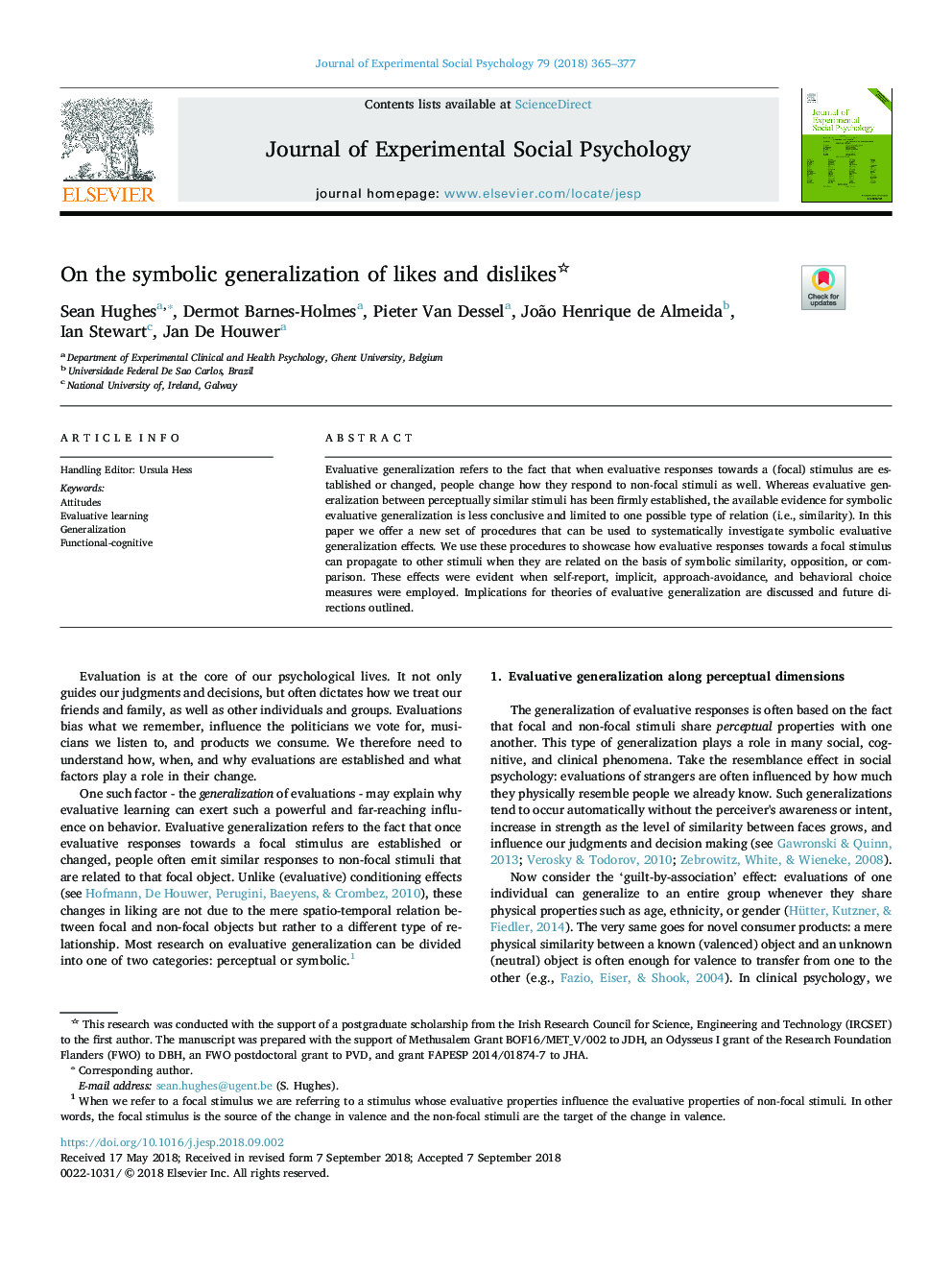| Article ID | Journal | Published Year | Pages | File Type |
|---|---|---|---|---|
| 11004721 | Journal of Experimental Social Psychology | 2018 | 13 Pages |
Abstract
Evaluative generalization refers to the fact that when evaluative responses towards a (focal) stimulus are established or changed, people change how they respond to non-focal stimuli as well. Whereas evaluative generalization between perceptually similar stimuli has been firmly established, the available evidence for symbolic evaluative generalization is less conclusive and limited to one possible type of relation (i.e., similarity). In this paper we offer a new set of procedures that can be used to systematically investigate symbolic evaluative generalization effects. We use these procedures to showcase how evaluative responses towards a focal stimulus can propagate to other stimuli when they are related on the basis of symbolic similarity, opposition, or comparison. These effects were evident when self-report, implicit, approach-avoidance, and behavioral choice measures were employed. Implications for theories of evaluative generalization are discussed and future directions outlined.
Related Topics
Life Sciences
Neuroscience
Behavioral Neuroscience
Authors
Sean Hughes, Dermot Barnes-Holmes, Pieter Van Dessel, João Henrique de Almeida, Ian Stewart, Jan De Houwer,
